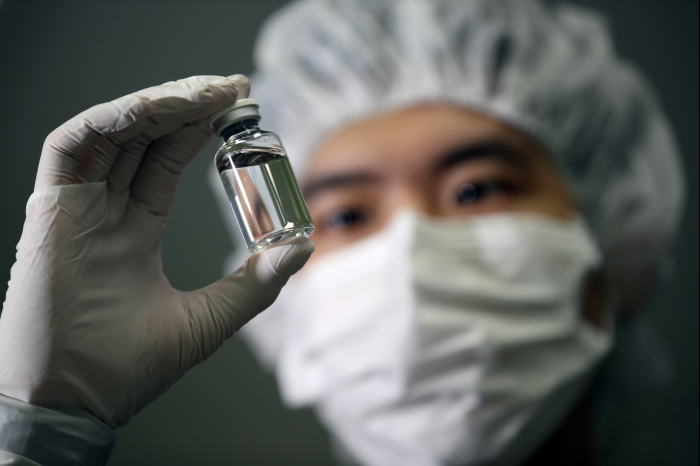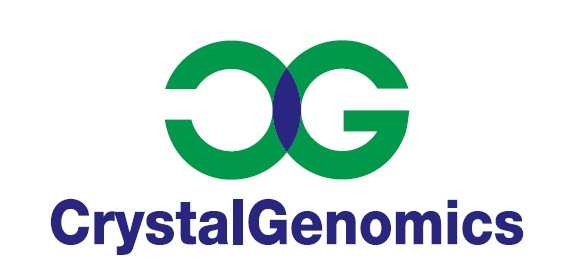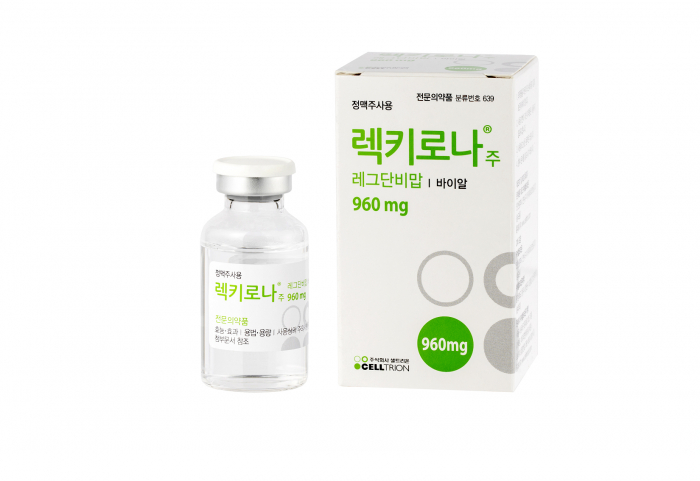Korean biotech firms fold COVID-19 therapeutics development businesses
Seven South Korean pharmaceutical or biotech firms have given up on the development of COVID-19 treatments
By Jul 04, 2022 (Gmt+09:00)
LG Chem to sell water filter business to Glenwood PE for $692 million


Kyobo Life poised to buy Japan’s SBI Group-owned savings bank


KT&G eyes overseas M&A after rejecting activist fund's offer


StockX in merger talks with Naver’s online reseller Kream


Mirae Asset to be named Korea Post’s core real estate fund operator



A string of South Korean pharmaceutical and biotech companies are waving the white flag when it comes to developing COVID-19 treatments.
As the outbreak has become an endemic, a state where the virus is consistently present but in a limited capacity, the road to bringing the outbreak's treatment to the market has become harder.
CrystalGenomics and Chong Kun Dang Group recently announced they will stop developing treatments for the virus.
To this end, CrystalGenomics have ceased Phase 2 clinical trials of Camostat, which it was developing as a COVID-19 treatment.
The drug developer was going by way of drug repositioning – the investigation of existing drugs for new therapeutic purposes.
Camostat is a drug that inhibits serine protease and was approved for treating chronic pancreatitis and postoperative reflux esophagitis in Japan.
CrystalGenomics stopped finding ways to utilize Camostat for COVID-19 treatment due to the emergence of the less fatal Omicron and the increased vaccination rate around the globe.
“Developing COVID-19 treatment makes less business sense now than before, and the investment is hard to come by due to shrinking liquidity worldwide,” an employee with the company told The Korea Economic Daily.

Chong Kun Dang announced it will cease Phase 3 clinical trials of its own blood anticoagulant and acute pancreatitis treatment drug Nafabelltan.
Like Camostat, Nafamostat mesylate, which Nafabellatan is made of, is a serine protease inhibitor.
Nafabellatan is a short-acting anticoagulant and is also used for the treatment of pancreatitis. The ingredient has some potential antiviral and anti-cancer properties as well.
The war on Ukraine thwarted the drugmaker’s plans for clinical trials in Russia, Ukraine, and the surrounding region.
While Chong Kun Dang wanted to move the clinical trials to South Korea, it had trouble finding people who’d volunteer for the tests.
A total of seven South Korean pharmaceutical or biotech firms, including the two mentioned earlier, have given up on the development of COVID-19 treatments.
Last week, Celltrion announced its plans to scrap the development of inhalable COVID-19 antibody therapy, citing low feasibility.
Last year, the Incheon-based drugmaker succeeded in the development of South Korea’s first human monoclonal antibody used for the treatment of COVID-19 called Regdanvimab, sold under the brand name Regkirona.
The company stopped any additional production of the treatment, however, after Regkirona was found to be ineffective against the Omicron variant.
Its plan to conduct Phase 3 clinical trials was further challenged, also due to the lack of volunteers.

Qurient is another drugmaker that put a stop to Phase 2 clinical trials of its development of COVID-19 treatment in South Africa for the same reason.
Three other pharmaceutical companies, GC Pharma, Il-Yang Pharm Co., and Bukwang Pharm Co. folded their COVID-19 treatment business plans last year.
Japan's Ministry of Health, Labor and Welfare postponed emergency approval of a COVID-19 treatment Xocova, jointly developed by South Korea’s Ildong Pharmaceutical and Japan's Shionogi Pharma.
The Japanese authority said it needs to be more cautious in examining the drug’s safety and effectiveness.
Those familiar with the approval process said the Tokyo authorities no longer feel that there is a need for emergency approval of a COVID-19 treatment as the outbreak has become endemic.
Daewoong Pharmaceutical Co. has also ceased Phase 2 clinical trials for mild to moderate cases of COVID-19.
Shin Poong Pharm Co. changed its Phase 3 clinical trial location from Russia to Colombia but still has difficulty getting enough volunteers.
“Pharmaceutical companies are also hit by the drug safety authorities’ decisions to close the fast-track channels for approval of COVID-19 drugs with the return to normal,” an industry insider said.
Write to Sun A Lee at suna@hankyung.com
Jee Abbey Lee edited this article.
-
 Bio & PharmaSK Bioscience wins marketing license for Korea's first COVID-19 vaccine
Bio & PharmaSK Bioscience wins marketing license for Korea's first COVID-19 vaccineJun 29, 2022 (Gmt+09:00)
2 Min read -
 PharmaceuticalsKorean pharma joins global race in RNA therapeutics development
PharmaceuticalsKorean pharma joins global race in RNA therapeutics developmentJan 21, 2022 (Gmt+09:00)
4 Min read -
 Pharamaceuticals, biotechCelltrion to conduct tests on Omicron variant detected in Korea
Pharamaceuticals, biotechCelltrion to conduct tests on Omicron variant detected in KoreaDec 06, 2021 (Gmt+09:00)
2 Min read


